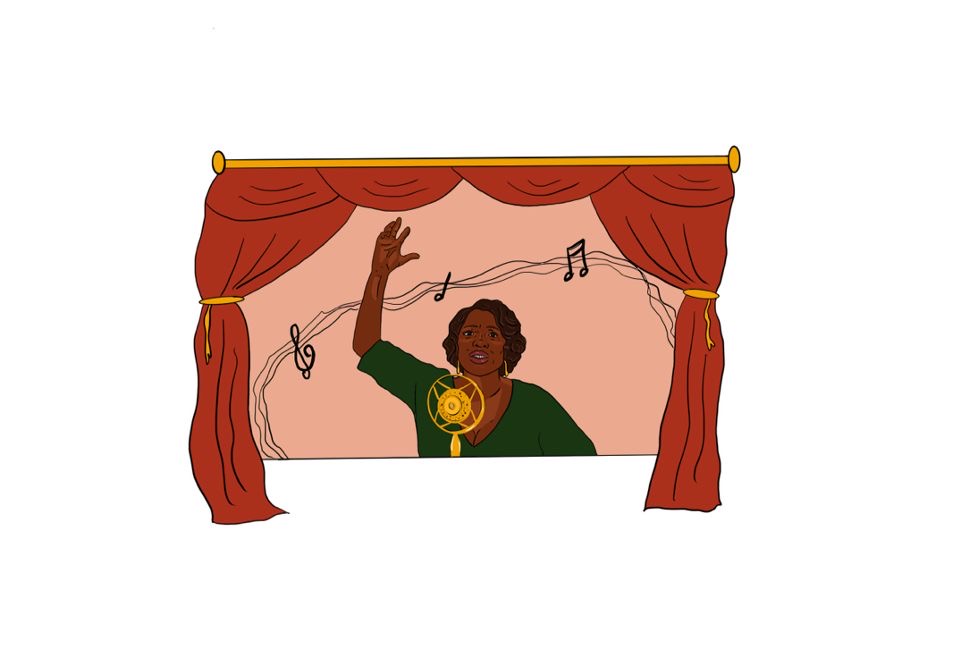The importance of Black stage-to screen adaptations
February 12, 2021
 Shona Ortiz
Shona OrtizIt’s safe to say that the majority of present-day moviegoers steer clear of stage-to-screen adaptations. There are films in this subgenre that would be considered classics, like Elia Kazan’s “A Streetcar Named Desire” and Milos Forman’s “Amadeus” and “One Flew Over the Cuckoo’s Nest,” but there is something about the intimacy of watching the film version of a work originally performed as a stage play that turns many audiences off. This past month, though, I watched two films that stuck with me for weeks: George C. Wolfe’s “Ma Rainey’s Black Bottom” and Regina King’s “One Night in Miami.” These two stories focus on different eras of Black history in America—one set in 1927, the other in 1964—and their associated philosophies. Both of these adaptations are masterfully crafted, with excellent directing and performances that will speak to people in ways that other stage-to-screen adaptations in the past have been unable to achieve.
Each of these adaptations addresses issues that are still relevant today, including the exploitation of Black artists and athletes and understanding how to effectively use one’s voice. The original “Ma Rainey’s Black Bottom” stage play was written in 1982 by August Wilson, one of the most significant playwrights in American theater. Following his success directing and starring in an adaptation of Wilson’s “Fences,” Denzel Washington produced this new film. It follows a blues band waiting to record songs for the titular character, Ma Rainey, as a trumpet player, Levee, tests everyone’s patience and his own creative authority. Gertrude “Ma” Rainey is considered to be the “Mother of the Blues,” but it is worth noting that she is not a well-known artist in American history. The play even addresses that Bessie Smith, a renowned American blues singer whose career was on the upswing in the 1920s, could threaten Ma’s status. What makes this adaptation so powerful is that Wilson crafts the play to explore what Black artists can (and cannot) do in a world controlled by white people. In the film, Ma explains that once her time is “up,” the white people that represent her will toss her aside. In the meantime, Levee, the trumpet player, wants to break out, and he steps away from the band to work for himself. Through Levee’s journey, Wilson reveals the extent to which the system is stacked against the Black artist. The movie also highlights how white people appropriate Black art forms.
“One Night in Miami” asks many of the same questions, but with some caveats. The Kemp Powers play first premiered in 2013 and provided Regina King with the opportunity for her own directorial debut. It follows Malcolm X, Muhammad Ali (then Cassius Clay), Jim Brown and Sam Cooke as they celebrate Ali’s win as the new heavyweight champion of the world. A central tension of the film lies between Malcolm X and Sam Cooke as they debate the best way to truly grapple with the Black struggle in America. However, the concern that stuck with me the most was how white people gain from Black talent in the movie industry and American culture. Jim Brown, one of the most famous football players of that time, worries about his own job security even at the height of his influence. In one scene, he meets with a man in Georgia who respects him as a player, but would still not let him into his house because of the color of his skin. Cooke, as a singer and producer, encounters similar circumstances as he aims to find a way to give Black creators opportunities in a white-dominated industry. This film speaks to struggles and realities that still exist in the United States of America.
These adaptations work because they allow their actors to do what they do best. One of the most compelling reasons to see “Ma Rainey’s Black Bottom” is Chadwick Boseman’s final performance as Levee, the trumpet player. As an actor, Boseman gave memorable performances in a wide variety of roles, whether it be as Jackie Robinson or King T’Challa. However, stage-to-screen adaptations are a sort of playground for actors in general as they get to demonstrate range that audiences might not have recognized before. It is incredible just how much Boseman steals the screen and it is clear to the audience that acting gave him joy.
Other actors use stage-to-screen adaptations as a way to jumpstart their careers. Kingsley Ben-Adir, who stars as Malcolm X, is a relatively new face, but he establishes that he is here to stay. Leslie Odom Jr., most well-known for his role as Aaron Burr in the Original Cast of Hamilton, shines in his performance as Sam Cooke. Stage-to-screen adaptations can allow actors to show off their talent in new ways—even those actors that audiences already love. Viola Davis has been a well-known, well-respected actor for years, but in “Ma Rainey’s Black Bottom,” she still manages to affirm why she is one of the best performers working today. Her screen time in the film is less than a half hour, but her presence is unmistakable.
These two films are important due to the exceptional work of Black creators, but also because of their impact on the audience; they are meant to be uncomfortable. Most people only watch films and TV in the luxury of their own homes right now. I, for one, miss live theater and performances, but these films provided an outlet to remind me of the wealth of talent that is out there. These adaptations provide an opportunity to learn a little more about famous Black American icons, but also to engage in some self-reflection. “Ma Rainey’s Black Bottom” and “One Night in Miami” will linger in your head for days on end. They prove that it’s time to give Black stage adaptations the acclaim they deserve.

Comments
Before submitting a comment, please review our comment policy. Some key points from the policy: